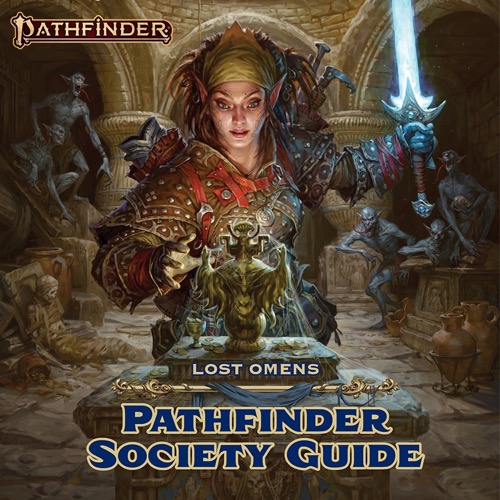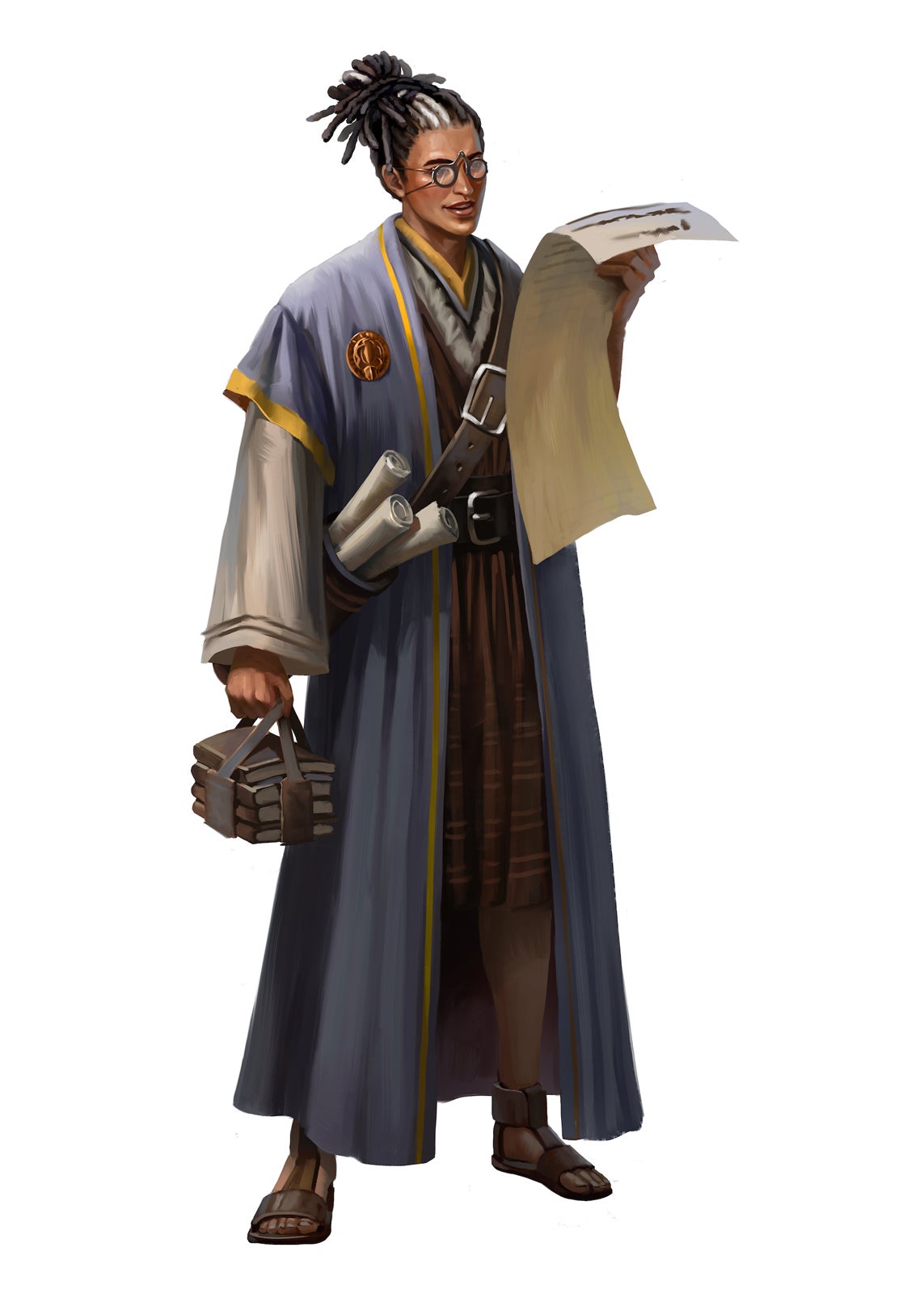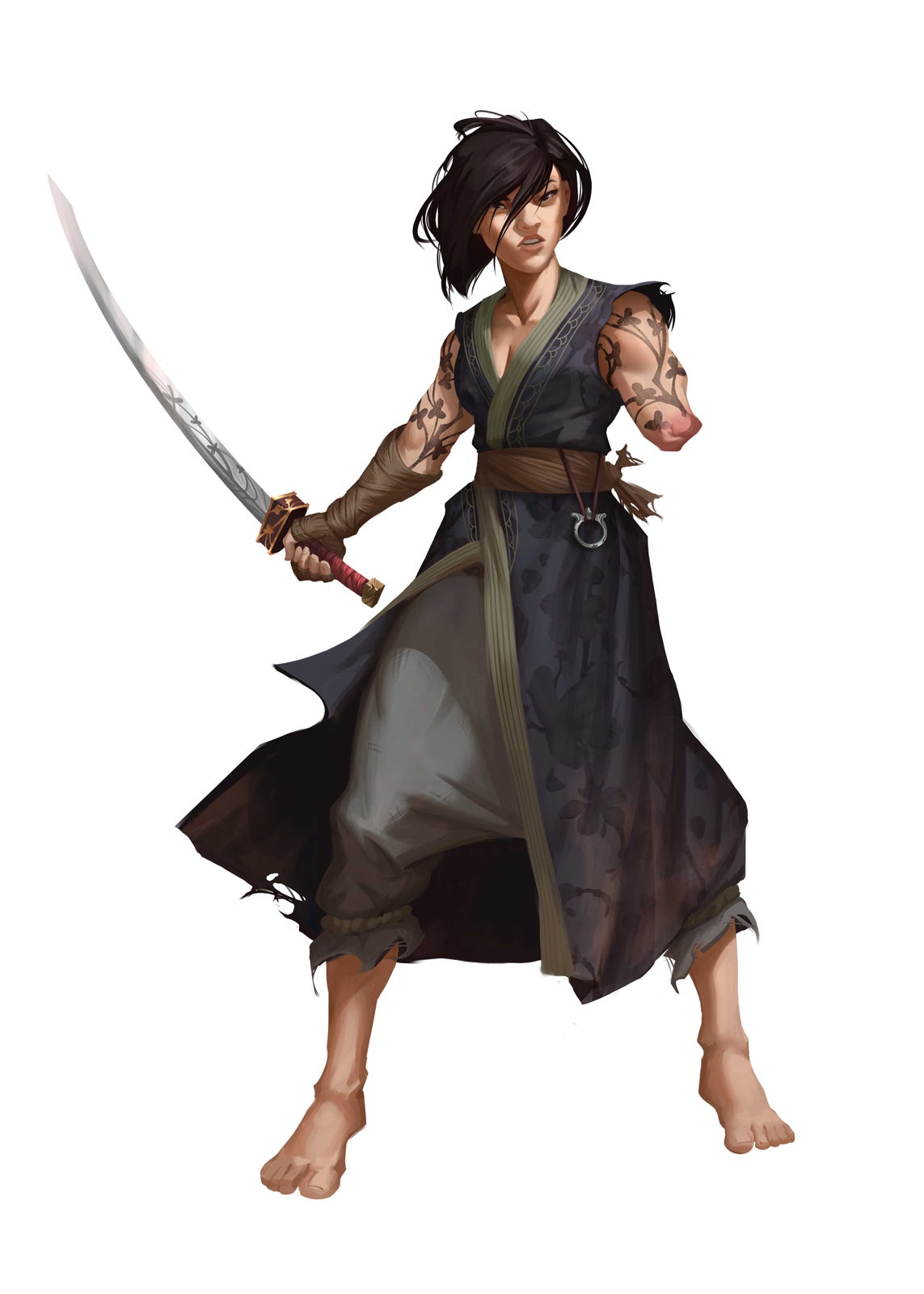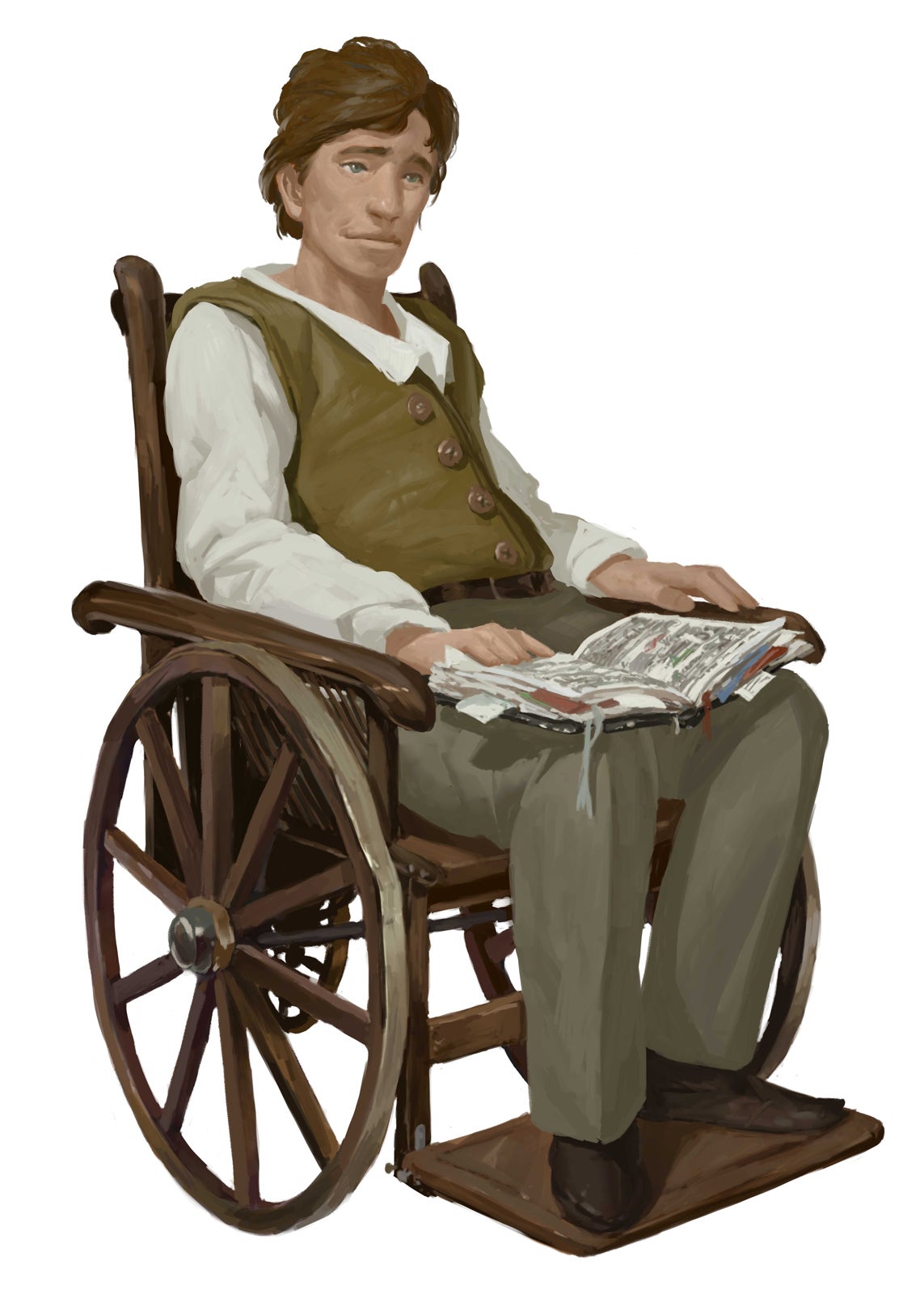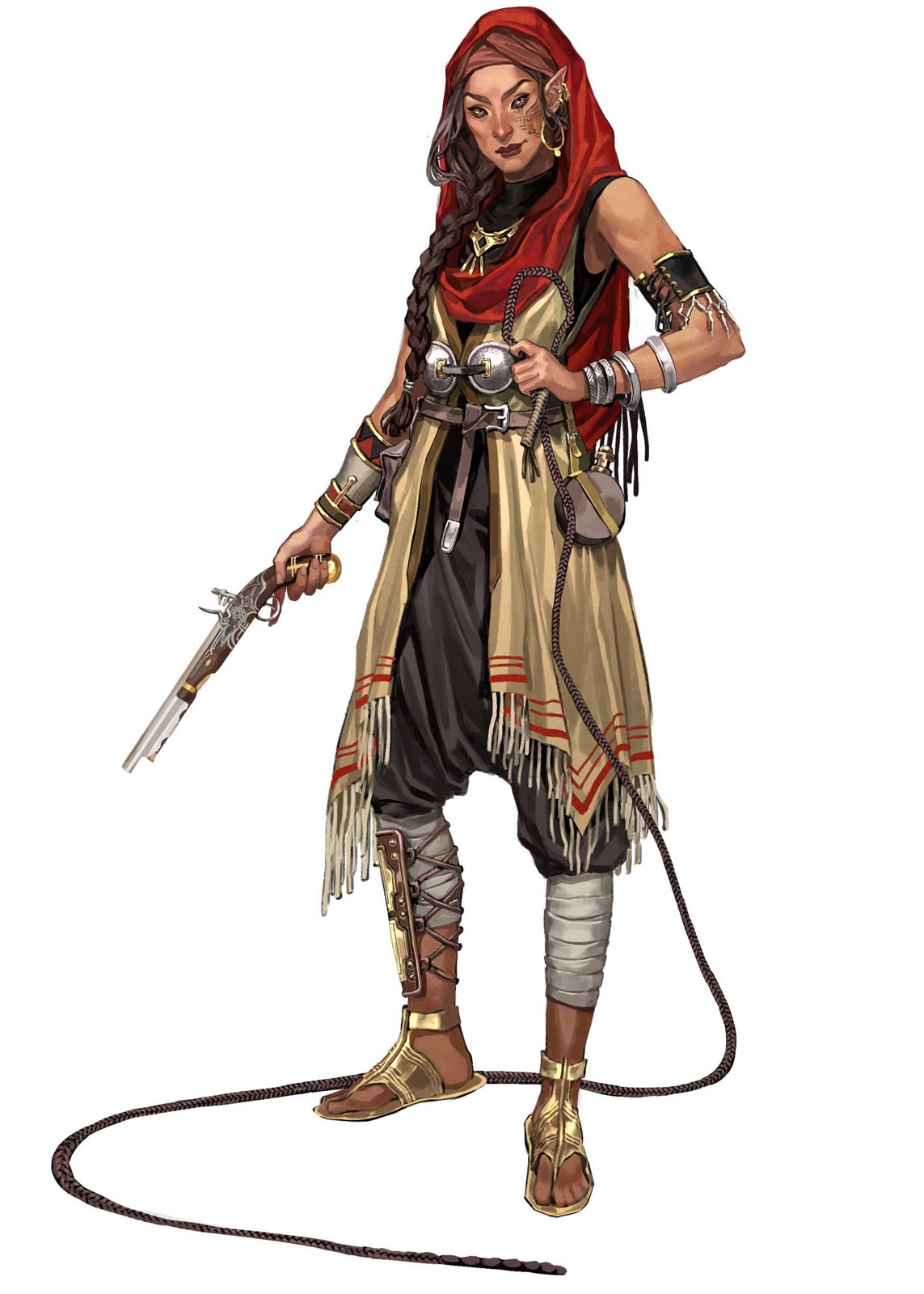When most people hear the name “Pathfinder Society,” they likely associate it with Paizo's real-world organized play program. Yet the Pathfinder Society is a long-established and influential organization within the world of Golarion itself. Explorers from the Society have set foot onto continents basically unknown to the Inner Sea, while the Pathfinder Chronicles have provided evening entertainment for some and inspiration into adventure for others. They have brought distant and long-forgotten sites into the forefront of cultural discussion, and hold some of the most complete libraries on certain subjects as can be found on the planet. Their allies are varied and many, from the crusaders who fought to close the Worldwound in Mendev and who now struggle against the Whispering Tyrant's armies, to the powerful Blakros family of Absalom—which was recently discovered to have gained its riches by sacrificing members of its family to forces in the Shadow Plane. Their enemies are just as disparate, from the exploitative Aspis Consortium to the Peacebuilders of Absalom, who are nothing more than aggravated neighbors who have become collateral damage in the Pathfinders' dealings one too many times.
Needless to say, the Pathfinder Society has a very complex and storied history.
The goal of Lost Omens Pathfinder Society Guide is to provide a comprehensive snapshot of the ins and outs of this organization, from the twists of its history to its many everyday operations. For those interested in having their characters join the Pathfinder Society, the first two chapters present a detailed look at life in the Society as a whole, from daily routines and yearly holidays to the many branches of training that Pathfinder recruits are expected to familiarize themselves with. Even those adventurers with little interest in the Society might find themselves picking up a useful trick or two from a Pathfinder ally or rival. Might your character learn a bit of the Society's silent Napsu-Sign to quietly communicate danger to allies (or communicate more accessibly to the deaf and mute)? Could one find a weakness-seeking alignment ampoule useful on her adventures?
Even those characters who find their calling elsewhere are likely to encounter one of the Pathfinders' many lodges on their adventures! From the frozen Lands of the Linnorm Kings to the impossible kingdom of Nex, Pathfinder strongholds can be found, harboring dozens of agents as they prepare to explore even more distant locales. These lodges are more than just a welcome spot of reprieve and resupply for the weary hero—no matter how subtle, the works of the local Pathfinder lodge always have an impact on local politics. From the political turmoil that the seemingly ill-fated Exalted Lodge is causing in Razmiran to Starrise Spire's increasingly tenuous claim to one of Mendev's grandest fortifications, the presence of the Pathfinders provides multiple plot hooks for other heroes to become involved in, be they allies, enemies, or entirely disinterested in the Pathfinder Society itself!
Finally comes a host of adventuring gear, magic items, and even companions that the Pathfinders commonly use and could provide—but that any hero might desire! From mundane tools such as glass cutters to customized wayfinders and unusual aeon stones, the Lost Omens: Pathfinder Society Guide has many pieces of exciting equipment that PCs can receive (or steal) in their interactions with the Society. Specific Pathfinder teachers can offer lessons in special feats (and who wouldn't want to learn Exploding Death Drop), while society agents might introduce a character to special new familiars such as an aeon wyrd, a wicker poppet, or even an adorable dweomercat cub!
Groups that aren’t part of the Pathfinder Society Organized Play campaign can still have the Pathfinder Society be a part of their campaigns with the help of this book. Groups could include the Pathfinder Society as the core of their campaigns, assign the Society to a supporting role, or even come in direct competition with Pathfinders as rivals. This book is still a great resource for groups not interested in including the Pathfinder Society in their campaigns as the new rules options are broad enough for most adventuring parties to use any time!
The Pathfinder Society is a group built by adventurers, for adventurers. Whether that makes you want to join up or makes you want to run a Society-focused game, the result is sure to make a great story!
Eleanor Ferron
Developer
Society Writ Large
Tuesday, October 6, 2020




